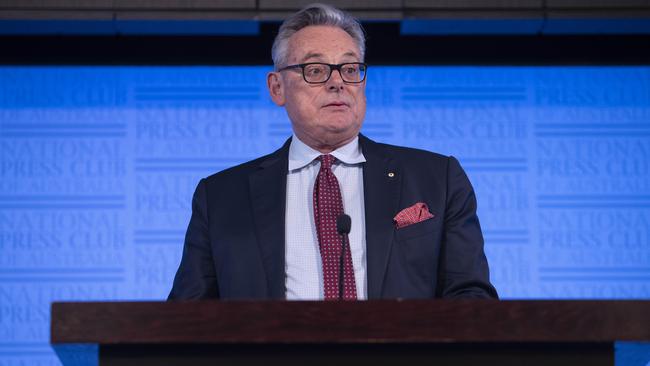
Raby, who strongly criticised Australia’s handling of China and the role of right-wing think tanks in his recent book on the relationship, told a VanEck webinar: “Canberra doesn’t like me saying this, but we need China more than China needs us. We need to stop talking about being victims of China and talk up the positives.”
Most Australian corporate leaders are cautious about saying too much at all about China lest they or their company cop any backlash.
Raby’s comment comes as the latest Wine Australia figures show sales to China fell from $173m in December 2019 to $4m in December last year.
In November, when the tariff duties ranging up to 212 per cent were imposed, sales fell from $135m to $58m.
Raby said the tone and the rhetoric to China would change under Joe Biden and this could help Australia to recover some of its relationship, but business needed to speak up in support.
Economist Saul Eslake said separately in the 2020 year China accounted for 39.5 per cent of Australia’s merchandise exports.
Raby said Australia’s decisions to speak up by itself against China on issues such as COVID-19 directly challenged the legitimacy of the regime, publicly accusing it of being untrustworthy, and he noted New Zealand criticism of Australia’s stance.
Tabcorp’s high stakes
Late last year Tabcorp boss David Attenborough told The Australian: “We’re committed to reinvigorating our retail channels and ensuring a seamless, omni-channel offer. There is more growth to be captured from accelerating and enhancing the digital entertainment experience in retail and the home environment to drive a better customer experience.
“We will also build on our track record of refreshing and relaunching our products.”
Entain’s Jette Nygaard-Andersen clearly agrees with the upside, which is why she wants to buy the wagering and media division.
Her timing is cute given that, at the same time as making gentle inquiries about Tabcorp through adviser Macquarie, she was rejecting a bid for her outfit by US casino giant MGM.
Tabcorp has emerged as a player in the US-led land rush for betting shops, with potential bidder UK-based Entain itself rejecting a bid last month from MGM.
The catalyst was the 2018 US Supreme Court ruling opening the way for deregulation of the US online betting market.
This has caused US casino groups to protect their empires, with Caesar’s last year acquiring its joint venture partner, UK bookmakers William Hill, for $US4bn. This prompted MGM to bid for its joint venture partner Entain.
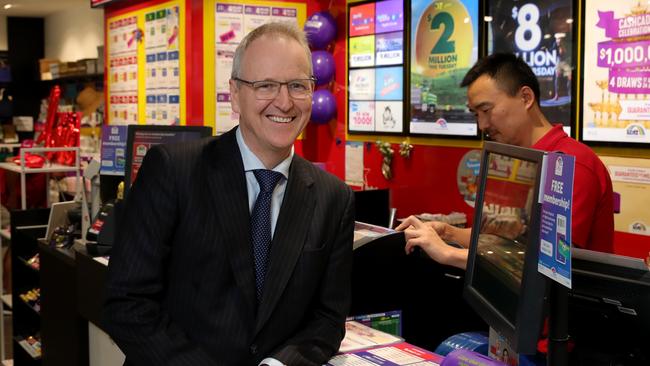
Nygaard-Andersen’s push for Tabcorp’s wagering business is clearly designed to both increase her stake in the sector and, in turn, grab a prize before someone else does.
Tabcorp is regarded as being attractive for its stranglehold of the wagering assets and media covering the races, along with its online gaming.
The ACCC surprisingly waved through the UK-based merger between Flutter (Sportsbet) and Stars in a $12bn deal that put Sportsbet in the lead in the Australian online market, just ahead of Tabcorp and way ahead of Bet365.
The regulator may take a little more interest if any of the mooted deals comes to fruition, because the target is a local behemoth even if in the case of Ladbrokes its share of the Australian market is small.
The talk of a potential bidding war for Tabcorp along the lines suggested, including a split of the monopoly lotteries business and the wagering arm, would be manna from heaven for shareholders such as Tanarra.
The wagering business last year earned $371m and trades at around nine times earnings.
Lotteries is a monopoly operator that earned $542m last year and trades at around 22 times earnings, and any investment banker will tell you demergers boost value in the long term by allowing management to concentrate on their core business.
But the global land grab for online betting capability has added to Tabcorp’s appeal.
Amazon’s reach
As Andy Jassy prepares to fill Jeff Bezos’s shoes at Amazon, the Wall Street Journal notes 40 per cent of US online shopping is done via Amazon, which explains the company’s $US1.6 trillion ($2.1 trillion) market value.
Warehouse capacity was increased by 50 per cent amid the COVID-19 rush, and staff shortages meant 400,000 staff were added, bringing the total workforce to 1.1 million.
So far, the behemoth has yet to trouble the scorer greatly in Australia.
Amcor’s nice surprise
Amcor’s Ron Delia set the tone for this half’s earnings season with a positive surprise and upgrade to full-year earnings, resulting in a 4.3 per cent increase in his stock price to $15.01.
The accompanying table courtesy of UBS shows this year’s consensus earnings forecasts in sectors such as banking have increased in the past two weeks and overall represent a hockey-stick recovery from a year ago.
Last year’s earnings growth was negative across the board and 24.1 per cent for the market, but this year analysts are looking for 23.3 per cent, before slowing to 8.2 per cent for the 2022 year.
The table will be featured throughout the earnings season to track movements in estimates.
Traditionally, earnings estimates for the year ahead are high before being cut closer to their actual release, but this year it’s mainly blue sky ahead.
This is reflected in a market that by most measures is expensive at 18.5 times earnings, and 29.7 times for industrial stocks.
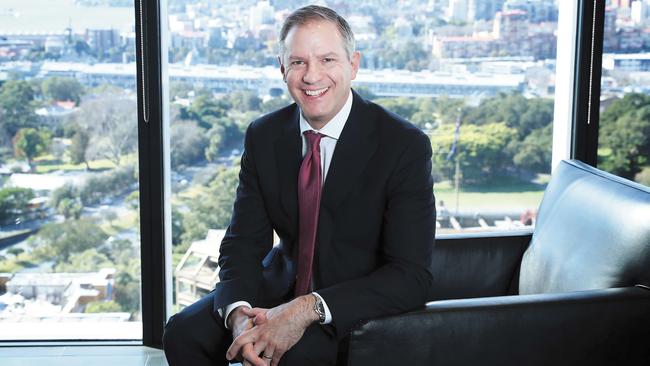
While Delia has met earnings and synergy estimates since the June 2019, $10.9bn Bemis buy, the fact is Amcor’s stock price has disappointed. Since the Bemis deal, the stock has underperformed the market by 15 per cent.
Granted Ken MacKenzie set a high standard, but since Delia took the top job in 2015 returns on investment are close to 15 per cent, from the 20 per cent previously.
The market liked the fact Delia lifted full-year earnings estimates from 7-12 per cent growth to 10-14 per cent. While Amcor has strong market share in all the key global markets, there is plenty of upside when you consider in Europe it has about 6000 customers against just 850 in the US. This tells you he has all the big companies in the US tied up, but room to grow at the small end of the market.
While on the surface the packaging company did well in a COVID market with more food eaten at home and beverage containers booming, Delia said there was no net benefit because the high-margin medical-supply business was weak, with elective surgery volumes well down.
He said Amcor was on track in its conversion to recycled resin.
In all, the company is rolling along a bit short of peak potential.



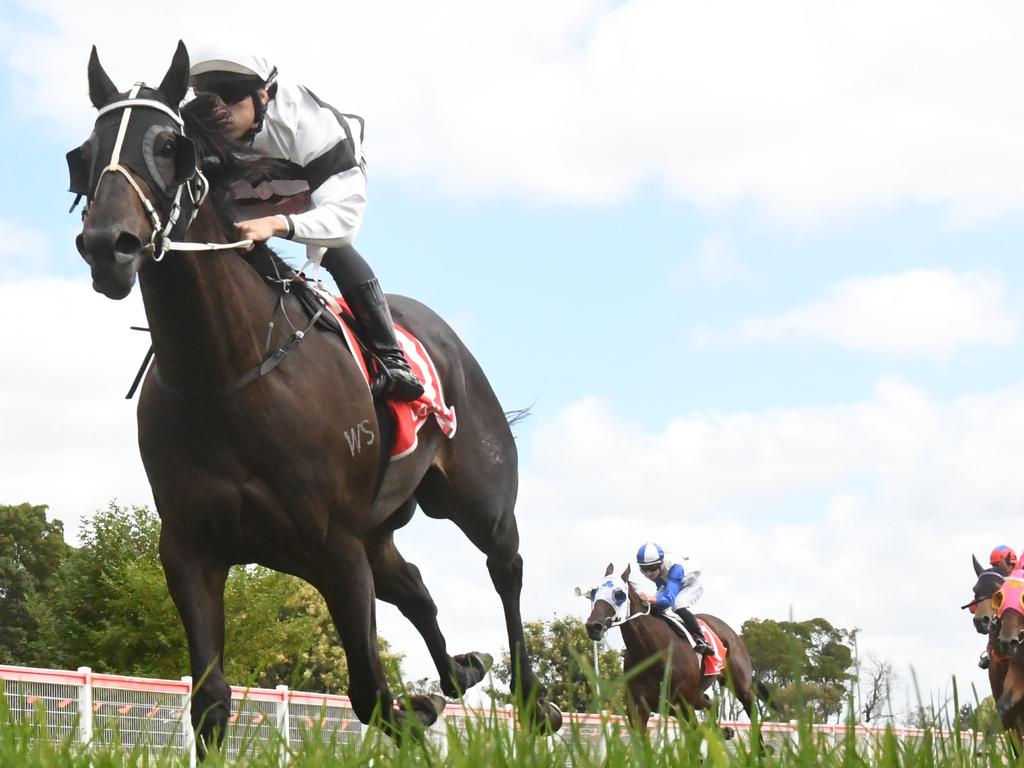
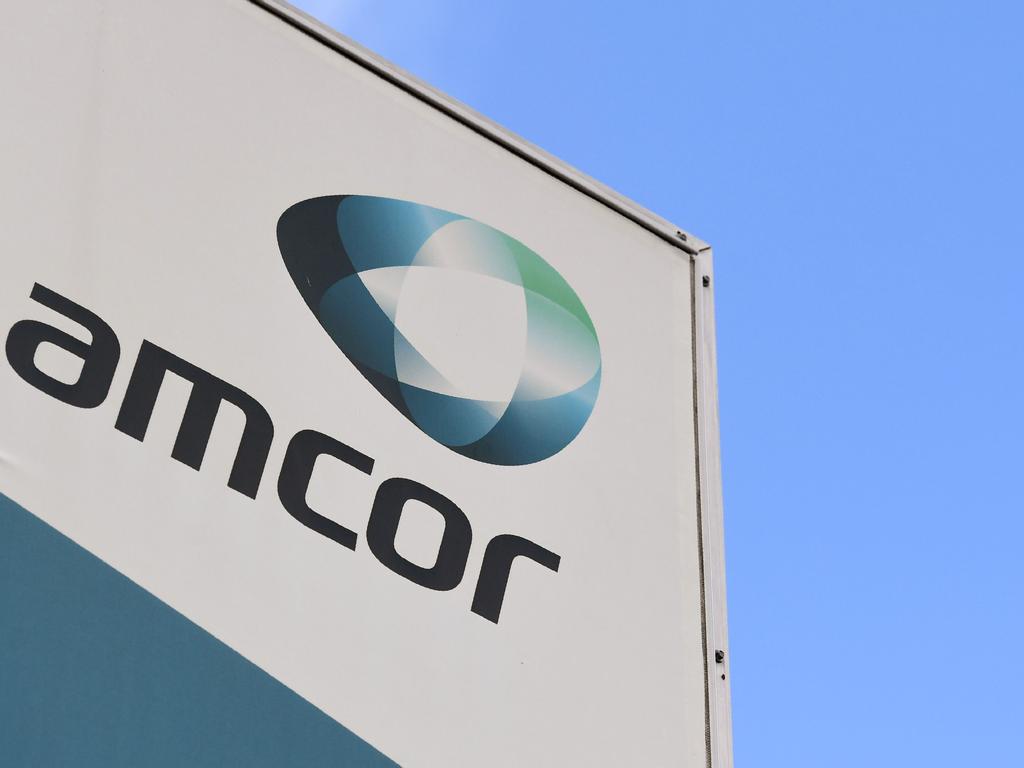
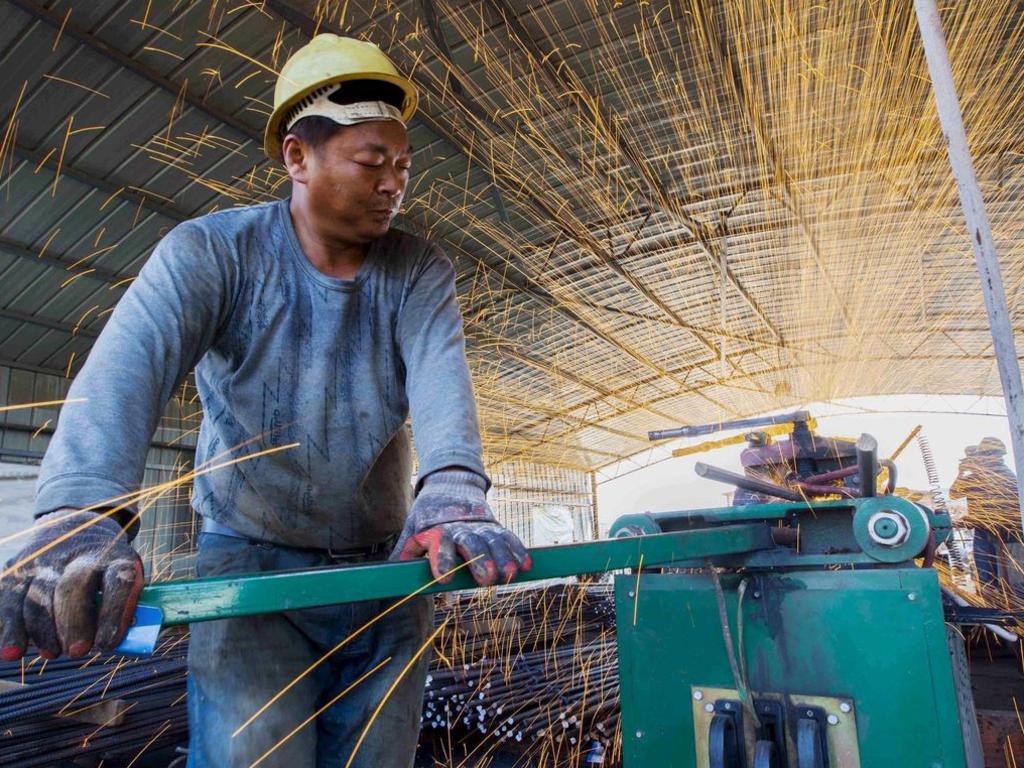
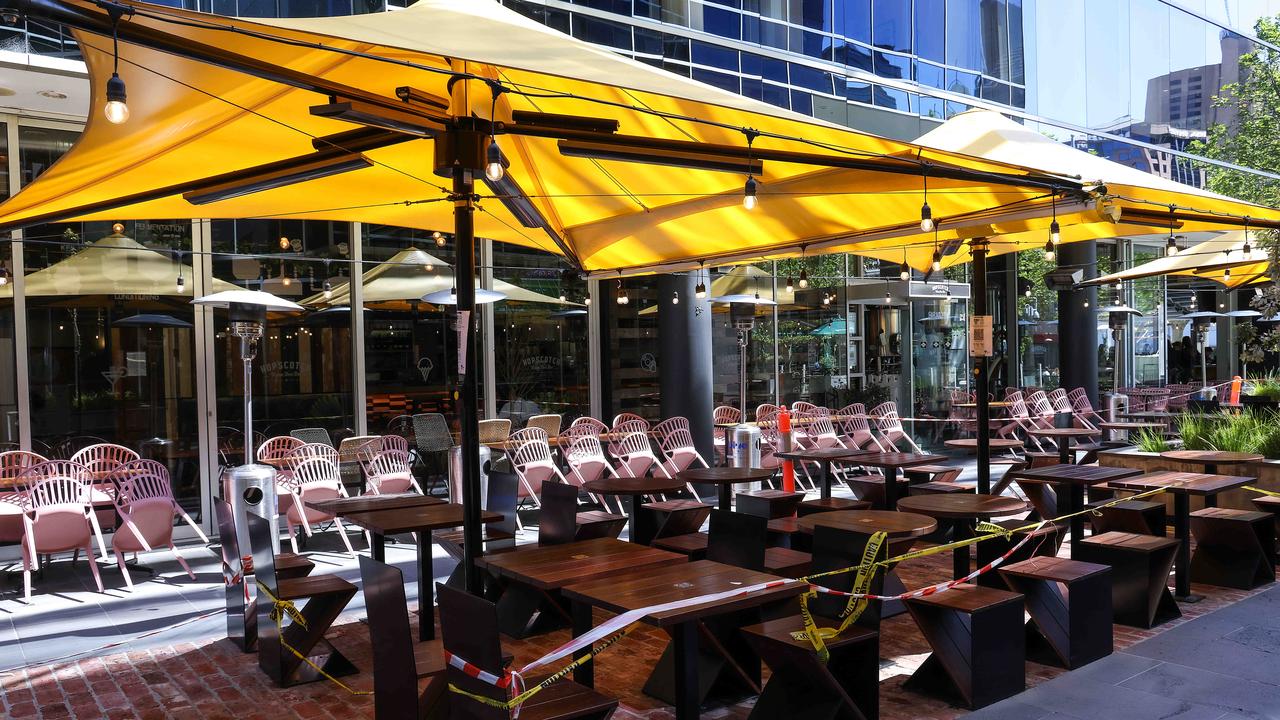
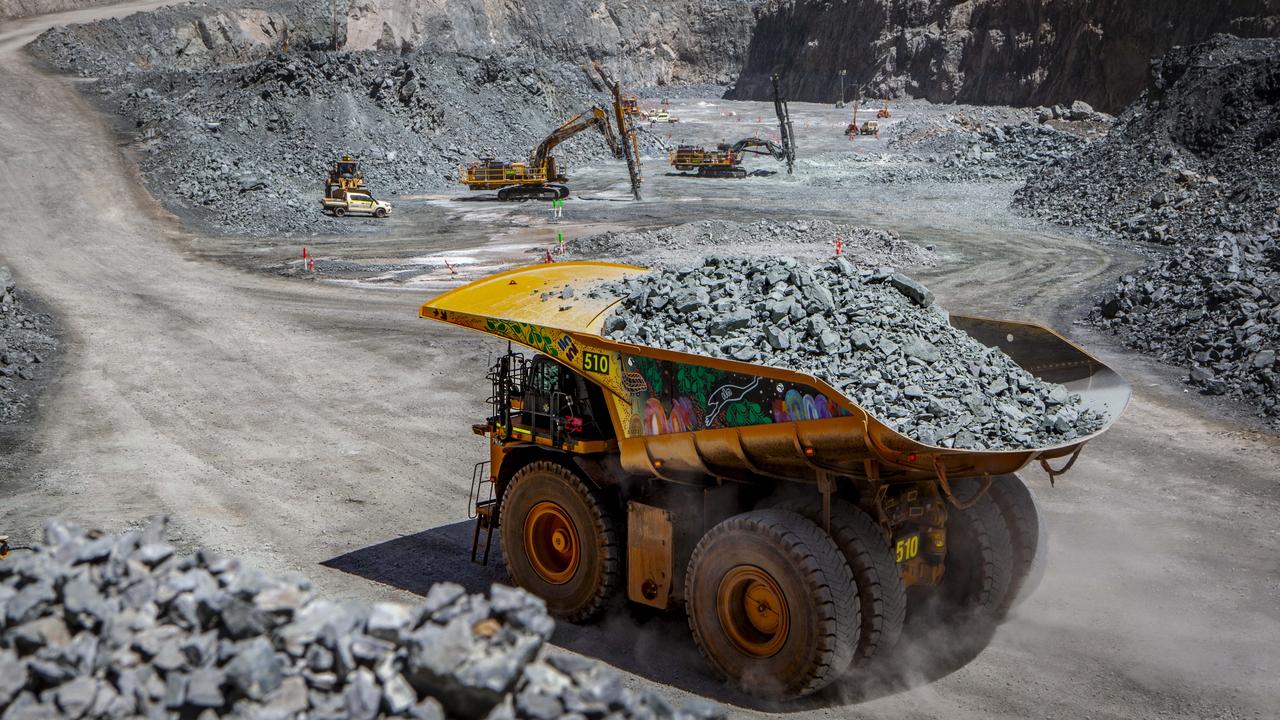
Amid the disastrous political relationship with China, former ambassador Geoff Raby has urged companies to speak up more, pressing the importance of the market and the costs of mishandling the relationship.